"If you want to build a ship, don't drum up people to collect wood and don't assign them tasks and work, but rather teach them to long for the endless immensity of the sea." -Antoine de Saint-Exupery
The Universe has been around for a long time: 13.8 billion years, to be precise. As humans, we're relatively young, and our species has only been around for the last couple of hundred thousand years of it. For nearly all of human history, this is what the night skies have looked like.
When the Moon isn't out and you're in a place that's completely devoid of light pollution, you can see upwards of 6,000 stars, depending on your vision. (When the Milky Way has set, you can do even better!) And although there are many celebrating International Dark Sky Week beginning today, I want to take you on a journey back through time, some 15,000 years ago, when these were the skies we'd have every night.
15,000 years ago, we had no idea what these lights in the night sky were.
We had no idea about a lot of things that we take for granted today, including agriculture (which didn't yet exist), the wheel (which hadn't been invented), metal-working (all our tools were still made of stone), wine-making (which wouldn't happen for another six-thousand years), or even a written language!
We had fire, we had stone tools, we had primitive art... and we had the skies.
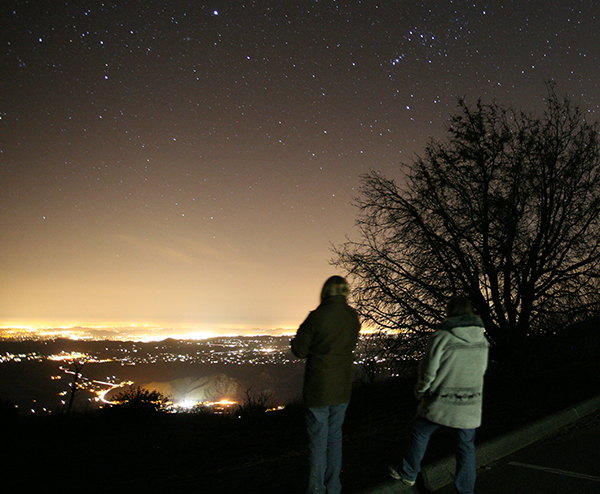 Image credit: International Dark Sky Association, http://www.darksky.org/.
Image credit: International Dark Sky Association, http://www.darksky.org/.
Yes, our technology and our understanding have come an incredible way since the end of the last Ice Age, and -- speaking for myself -- I think our life expectancy, quality of life, and knowledge of the Universe around us is something that would be unimaginable to people living just a few hundred generations ago.
And if we go to a place where all the lights are turned out at night, there's even more to marvel at. There are thousands of man-made satellites up there, and even a few human beings on board one of them!
Earlier this week, one of the science missions aboard the ISS, the Alpha Magnetic Spectrometer, had its science team release an unsubstantiated claim about the discovery of dark matter, which looks to be untrue. It's a big, expensive mission, to the tune of some $2 billion, and perhaps they felt they needed a grandiose claim to justify the money that was spent on it.
But I strongly disagree. Science is a process, and we don't know what we're going to find until (and unless) we look. Sometimes we find things that are puzzling, sometimes we find exactly what was expected, and sometimes we don't know why we're seeing what we're seeing.
But I also know that science is how the world moves forward, and how we enjoy the existence we do today that would be unfathomable to humans from 15,000 years ago. In fact, even just 100 years ago, we thought that the entire Universe was contained in our own Milky Way galaxy, had practically no knowledge of the quantum world or of general relativity, had no televisions, cellphones, or electronic computers. We didn't know how the Sun worked.
And yet, here we are, in the 21st Century, where we have practically unlimited access to all of human knowledge.
But with just a few brief exceptions, we haven't even begun to explore the cosmic ocean above.
Think back 15,000 years, to what it must've been like on Earth back then as a human being. Your tools built out of wood and stone, your life being dependent on the struggle for food, shelter and warmth, no defense against or understanding of disease, your clothes and blankets made from plants and animals, and the ability to start (and control) a fire frequently making the difference between life and death.
We've come a long way, haven't we?
Now, dream a little farther. What, can you imagine, if everything goes right for humanity, do you think life will be like 15,000 years from now?
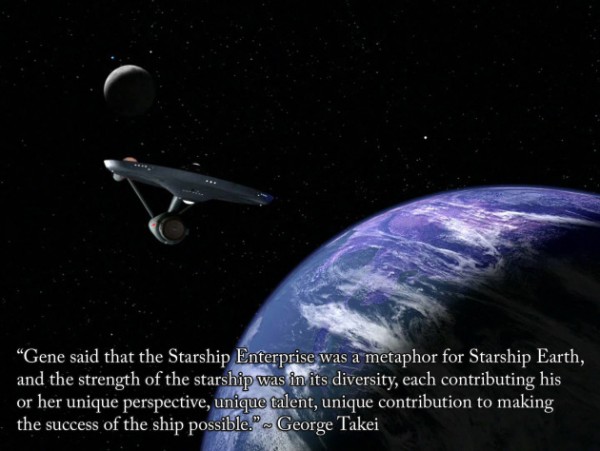 Image retrieved from: Paul Salahuddin Armstrong of http://paulsarmstrong.com/.
Image retrieved from: Paul Salahuddin Armstrong of http://paulsarmstrong.com/.
The Earth will still be here, with continents and oceans, teeming with life. This is true, pretty much, regardless of what we do to it.
But where will we be? Will we be living in a technocratic, sustainable utopia? Will we have solved our environmental and energy problems? Will everyone on Earth live in luxury unfathomable to us, the way we live now compared to an ancient, Stone Age king? Will we have colonized other worlds and begun spreading terrestrial life throughout the galaxy, or will we have found other life that already happens to be out there?
I think we will. I see the challenges we face today as evidence of how quickly we're moving forward, and even though there are many who refuse to admit the problems we have today, science does not waver in the face of political pressures; it simply tells the truth. And I think we're smart enough to recognize that this is our way forward; it's always been our way forward and will continue to be.
These are not only my dreams, these are -- in many ways -- the dreams of us all. To have a life for modern humanity's descendants that's superior to our own in every way, one that we helped bring about.
That's the promise of science. That's what we've accomplished so far through our long-term investment in ourselves.
And all of that has come on a shoestring budget, where something like a total of maybe 1% of our resources are invested with a view towards this future.
But every star I see or learn about is a new source of hope to me. It's a new chance that the Universe has for life, intelligence, and the future of all we know. There are billions and billions of stars in our galaxy, with hundreds of billions of galaxies lighting up our Universe.
And I can't help but imagine how quickly we could get there -- to see it all, to know as much as we can -- if we pushed all our other problems aside, the mundane ones that history will forget (fame, wars, power, politics), and just invested in this as our goal. If we took all that we invested in the military -- 26% of the US budget -- and invested that in science instead, could we accomplish as much as we might in 15,000 years in just a few human lifetimes?
Instead of rovers on Mars, we might have cities on Mars. Instead of longing for the stars, we might be discovering them. Instead of searching for habitable exoplanets, we could be trying to colonize them. And instead of wondering about extraterrestrial life, we could be making contact with it.
But we're not ready for that just yet.
First, we need to long for the stars.
- Log in to post comments

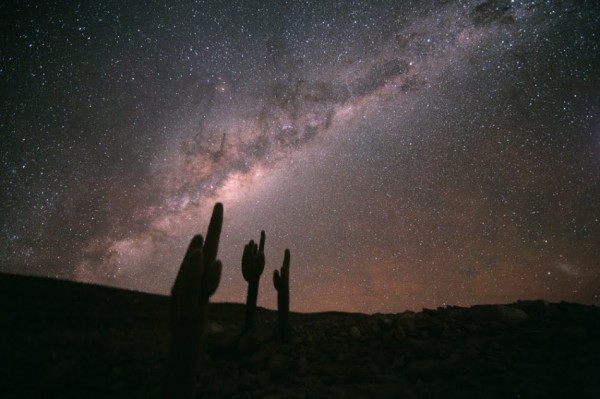
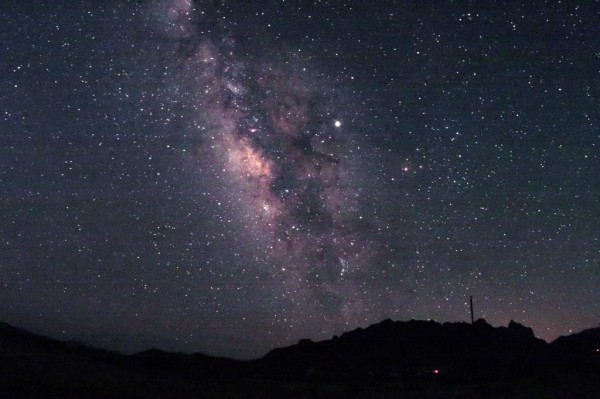
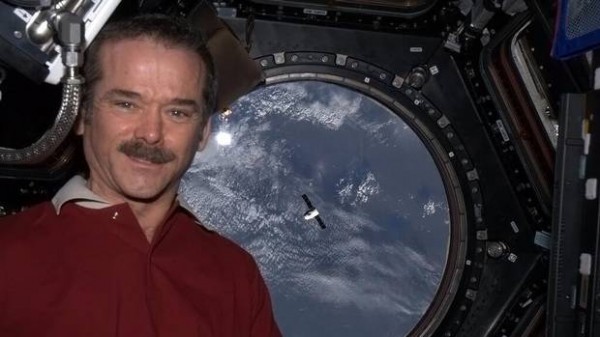
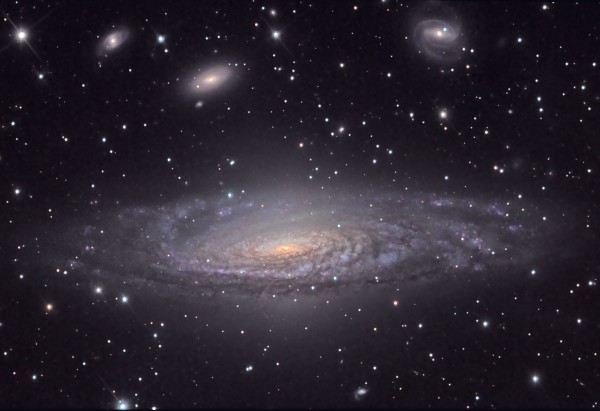
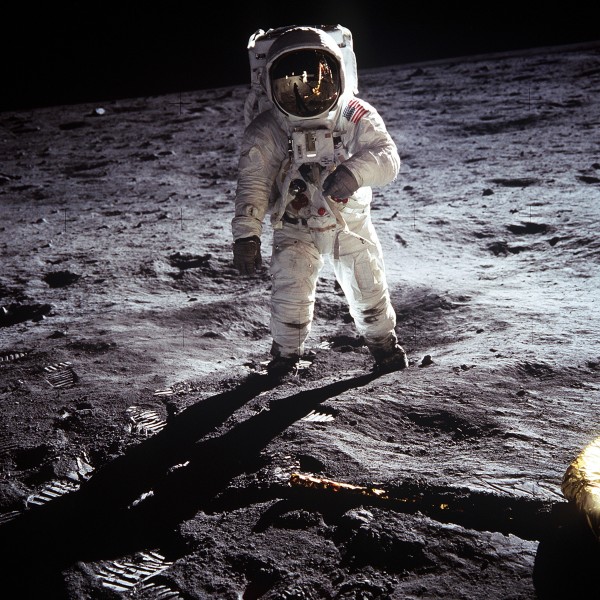

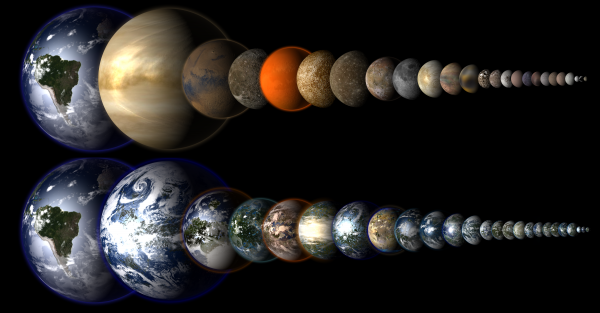

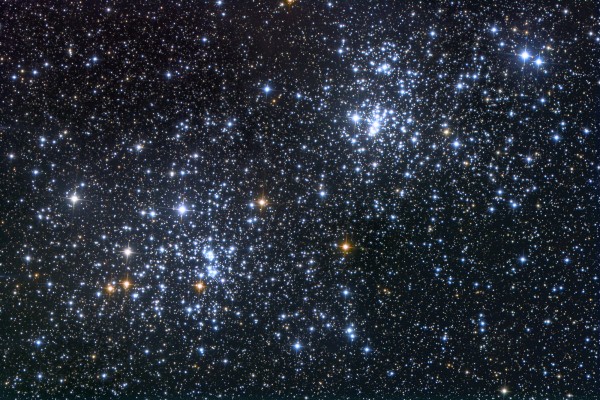
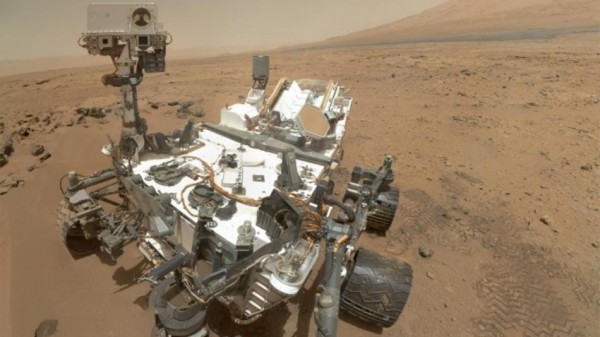
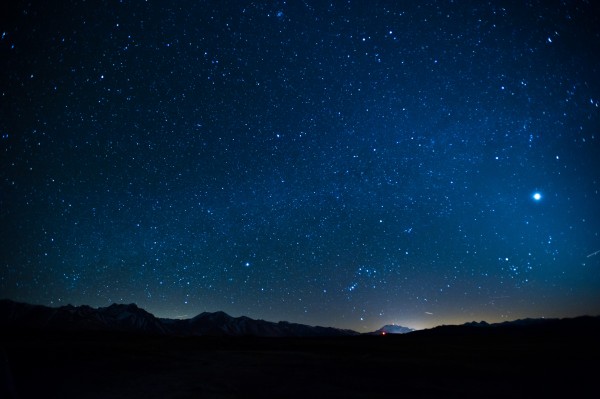
Happy First Contact Day to you, too! ;)
Ethan, your blog remains one of the most unique, fresh and inspiring astronomy blogs in the blogosphere. Keep up the excellent work.
Mike
We get what we deserve, I am pretty sure of it. As being a scientist, of course You (and me as well) think, that science is a good thing to invest in. But you have to see, we are a minority. The vast majority of people see science as a dead investment of resources. The large decisions of our society are driven by emotions. Logic only plays a minor role in accomplishing goals, set by emotions. The military for example, especially in the USA is driven by fear. I guess we are over the times where we had kings that tried to conquer the world. Today, fear is the main driver for military, and military advisors are especially fearful and they arguments are touching the fear in people. The "war on terror" is build on fear. the 26% budged is a measure of the fear in the USA society. The military is spreading fear to expand their influence. Examples: take school shootings. Its a huge tragedy to the society, but the answer that I have heared is armed personal at schools. That creates more fear. The correct answer would be to build a society that does not produce twisted minds. Or if it does, help them to get along, not fear them and outlaw them. Or take 911 event. Sure, it was a huge tragedy. But the answer, militaristic in its nature, will create even more terrorists. Instead of fighting for a peaceful world where you dont need to fear your neighbors, the USA is going the opposite way. And this is supported by the society.
Take Germany for example, my home country. We have a huge economic crisis due the way the euro works. But instead of fixing the problem, Germany is the main driver in threatening the other european members: "If you dont do as we say, the whole economy of europe is going to collapse". Thats fear right there. And the actions that are taken enslave the societies instead of rescuing them. They way Germany acts is best described as imperial. Its wrong and they know it, but they still do it because they are affraid to piss on the legs of the big economical players. Thats also fear right there.
Fear is only one emotion of many. However, its the most predominant to my opinion. Coming back to science.
Science on the other hand is build on curiosity. And I don't mean the rover, I mean the emotion. Curiosity is much weaker, and comes much later in Meslows hierarchy of needs. ( http://en.wikipedia.org/wiki/Maslow%27s_hierarchy_of_needs ). That's why we do not invest and never will invest in science, unless our society changes from the inside. Investing in science requires a large amount of trust that its outcomes are not misused. Spacetravel in particular has always the potential for great weapons (rockets can contain science labs or bombs.. energy sources can give of small amounts of heat or large amounts in a very short time period..). You need to trust that its not misused. And trust is not possible if you fear your neighbours.
On the other hand, science also creates trust. It is (as fear too) a self sustaining process with a positive backloop. We can only hope that it is stronger than fear over time. I cross my fingers for humanity. And that brings me back to my first sentence. If we (as a society) stay in fear and mistrust, that what we get for the future. If we are able to overcome that, we will be able to reach for the stars, not just longing for them.
Cheers,
Semmel
@ Ethan
Instead of rovers on Mars, we might have cities on Mars
Comment 1: Some years ago, a journalist named P. J. O’Rourke once wrote an article: ‘The Outdoors and How it Got There.’
Perhaps nasty things like planets might be regarded as the icky outdoors by our descendants, someday.
That would be a relief in a way. It would mean that no aliens would ever want to invade and take over Earth.
Comment 2: It might make more sense to create Tasmania sized planet ships and leave verminous, volcanically unstable, asteroid magnet, unpredictable planets behind.
Instead of longing for the stars, we might be discovering them.
Comment 3: Fat chance. If you’ve ruled out all possibility of travel in something like, let us say, the Randall-Sundrum ‘bulk’, or hyperspace, and if you adhere strictly to the current paradigms and doctrines of modern physics and cosmology, there will be no face to face ‘discovering’ of any stars in any meaningful or useful sense. Not now, not ever.
Instead of searching for habitable exoplanets, we could be trying to colonize them.
See comments 2 & 3 above.
And instead of wondering about extraterrestrial life, we could be making contact with it.
See comment 3 above.
P.S. You might be interested to know that I'm continuing my websearch for an explanation of how a particle that is its own antiparticle can annihilate with itself. So far, no joy.
#4 how a particle that is its own antiparticle can annihilate with itself
For example, a photon can annihilate another photon of opposite polarization. Look at the quantum numbers, e.g., spin. Macroscopically, EM waves (of photons) can interfere based on this.
This is the sentiment that I've had for quite a while now. The idea that the stars are our unavoidable destiny - if one can wind the tape far enough ahead in humanity's future, barring catastrophe - and yet, we seem to be embracing that destiny with extreme reluctance bordering on indifference.
It's sad to me.
Ethan,
Thanks for eloquently establishing that science and the scientific method hold the future to all intellect and sentient advancement. Science must be protected from the corrupting influences of politics and manipulated consensus. Great piece.
Hi Ethan,
Great post as always, thanks for all you do and thanks to reading your blog for the last couple of years I suspected the Spectrometer claim about dark matter was unsubstantiated. In regards to space colonization, let's get going! If I was not fortunate enough to start a family late in life I would be signing up for the Mars One mission. Most people emigrating to this country in our early history understood it was a one way trip and we need to rekindle that spirit versus orbiting earth basically staring at our navel. I would like to politely note that history has shown that there is no "peace dividend" and just because we use incorrect (stupid) nomenclature like "war on terror" does not mean we do not need a defense budget. I am also confused by your 26% figure - I thought is was 4.8% which is still a heck of a lot of money. Let's go to Mars and the Moon NOW!!
As a kid, I used to be optimistic about the far future, and man eventually reaching other star systems (and thus save our species beyond the potential of global catastrophe or even just the increasing solar output in a billion or so years). That was probably the result of being in the midst of the excitement of the early space program as well as Star Trek (TOS). But the past few decades I've been a bit less positive that we can pull it all together. This post reminded me of a Carl Sagan quote where: "It will not be we who venture to Alpha Centauri and other nearby star systems... but a species very like us".
http://www.youtube.com/watch?v=Q3OZz-vgAjY
That implies we can change for the better. I hope we can. I won't be around to know, but I'd like to think it so.
May the Force be with us! (not GR :)
In regard to the long view of human technological and cultural development, I am sure you are familiar with the corpus of anglo-saxon SF relating to this matter.
But I would recommend -strongly recommend- that you also read the books, fiction and non-fiction both, by the Polish SF author and polymath Stanislaw Lem (a favourite of Freeman Dyson, BTW).
He was so far ahead of the curve that whenever you ask yourself a Deep Question, the odds are that Lem (or Arthur C. Clarke for that matter) has addressed it in his writing.
It is an amazing stuff presented in a lucid and absorbing style!
"The Earth will still be here, with continents and oceans, teeming with life. This is true, pretty much, regardless of what we do to it."
This is an extremely ignorant statement, Ethan.
Perhaps you all are just merely missing the timeline here, but in the last 100 years we have made immeasurable progress toward these goals and will likely make even further progress in the next 100. Keep in mind that we only first flirted with space a few generations ago and now we have humans and man-made satellites and robots far off from our own planet. Once humanity harnesses the proper energy source and finds a way to provide for the basic needs of all(with science of course) we will all look to the stars together. There's nowhere else for the population to go, after all, once we throw war, famine and disease out of the window.
When I was in Sa'udi Arabia, the Bedou had a saying:
"My father rode a camel. I drive a car. My son flies an airplane. My grandson will ride a camel."
I don't think we'll be here very much longer..and you can blame Liberals.
Thanks for telling us we're allowed to blame liberals.
Can we blame anyone else? Or is a decision on that still pending?
TIA.
"P.S. You might be interested to know that I’m continuing my websearch for an explanation of how a particle that is its own antiparticle can annihilate with itself. So far, no joy."
Glad to know you're continuing your refusal to think for two seconds about obvious alternatives.
Up to a point, Mr. Siegel, I like your hair, your outer space expansionism, and your desire to be a cheerleader for the all-too-hard sciences; and yet, my friend, your politics are a touch too sentimental and even--dare I say--unempirical.
In particular, the Big Govt monetary restriction on manned space-travel (including alien-planet colonization) is not mainly the military but rather social-welfare govt-handout vote-buying programs like medicaid, medicare, social security, Obamacare, govt disability, food stamps, and all the other govt-mandated "entitlements" that are indeed designed by socialistic pols like American Democrats or French socialists to bribe votes from non-workers and govt "busy-workers."
So, the Big Govt Welfare state is chiefly that largest aspect of government that needs to be cut back in order to speed our American exploration and exploitation of the stars, Mars, etc.
Regarding military cutbacks, that is difficult to do until man, Homo sapiens himself, becomes a good deal less NATURALLY and biologically aggressive. That is, would you really feel safe in living in a world where the relatively reasonable world-cop America is defenseless and the likes of North Korea and China (the latter being the imperialistic state that is now trying to bully its way into annexing the South China Sea and the East China Sea) run amok?
Empirically, man is an aggressive, territorial beast and we do need cops therefore, and an army.
In fact, what do you think would happen if we Americans did colonize Mars and start exploiting that new world's natural resources? Wouldn't the Chinese be militarily challenging our extraterrestrial territories? The only reason nations do not fight over Antarctica is because it's so cold there it's (at least for now) unexploitable.
Watch out, though. If the lefty Democrats are right and global warming's actual benefits materialize and the polar icecaps really do melt, then there'll be trouble, and fighting. Already, Russia, Canada, America and the other northern nations are starting to squabble or fight over who's got dibs on the possibly ice-free arctic Northwest Passage, on the assumption that the rewards of global warming do occur. Frankly, I have the audacity of hope that global warming does prove to be a reality. I do live in the snowbelt, and it is not monetarily wise for me to move. But, I would like more California weather in our nation's heartland, since I'm no polar bear but rather a hairless ape.
Again, I enjoy your sentiments, Mr. Siegel, and your warrior-Indian Mohawk-hair innovations, yet I fear your amiable philosophizing on the politics of space expansionism and imperialism are a tad too sentimental.
As soon as it is practical to mine minerals on Mars or "harvest" the sun's energy on Mercury, it'll be every country, every company, and every man for himself. Gold Rushes and Boom Towns ain't pretty. They're lucrative, and they do get new worlds made and settled--but they're hell to pay.
--Dr. LaChance
Semmel,
If you invest everything in science and nothing for defense, what happens when some half-crazy, third world dictator realizes that you are:
A. Very prosperous
B. Very weak?
The fact that you (and probably most of the people who will read this) recognize that war is stupid and self-destructive does not imply that military defense is unneeded. There are, and probably always will be, people who are irrational and/or immoral, and we do need to defend against them.
BTW: I am in no way implying personal agreement with the defense policies of the US or any other country of the world. I am simply arguing against the idea that military defenses are unnecessary. I sincerely wish that this were not true, but unfortunately we do now, and probably will need defense capability for the forseeable future.
Pfft. Doesn't need to be a half-crazy third world dictator.
See Gulf War 2...
Okay, what if instead of spending literally nothing on defense, what if we merely spent what is reasonable in a time of peace to provide for a credible deterrent? You know, like most nations in the world?
Cold War is over, folks. We don't need to spend multiple times other country's military expenditures on an enormous standing army -- most of which does zero good against our remaining enemies. The only country we're bankrupting by doing so is ourselves.
Eisenhower was right.
Thanks for the truly inspiring post. I thoroughly enjoyed it.
Most of your comments were silly, but this among them was the most hilarious. Thanks for the chuckle.
"social security,... and all the other govt-mandated “entitlements""
ROFLMAOing here, though.
So wanting the benefits out that you put money in to get is an "entitlement" now????
The age of the Universe just a few billion years? Our scientists still have much to learn. There are 10 to the power of 49 Universes in the 'Absolutum'. We are one of them. Every Universe has an awake period 311 trillion year. We are in the 47th trillion year of the cycle in this Universe.
Open www.theyfly.com and see where this info comes from, and read The Pleiadian Mission by Randolph Winters for the fine points.
Before you scream fraud, consider that the Swiss et conactee Meier published info from et re our solar system,often years ahead of nasa's discoveries.
If you want to believe we are alone, themost high tech in the Universe, and came from chimp, that is none of my business.
Semmel -
How disingenuous for such comments to originate from a nation only 75 years removed from the definitive example of why a strong military is needed to protect our civilization. The fact is that human nature has been proven over and over again to be corrupt, evil and ethnocentric. Without a defense which is at least as powerful as the self-appointed "master race", all science and knowledge will be subverted, and academic freedom will be lost. So remember that while one hand holds the sword, the other holds the shield, and the outcome is the result of both.
"Before you scream fraud"
Can we still laugh out loud at the lunacy?
@ Douglas Watts #13:
Sorry Douglas, but Ethan is correct. Only the overblown human ego can think otherwise. Our biggest threat is to ourselves - not to planet Earth, which will certainly survive anything we can throw at it. What's in doubt is whether we can survive the conditions we bring about. The Earth will spin on regardless. We need the Earth to survive. It DOESN'T need us.
Sean T:
I dont want to say and I think I didnt, that military defense is unnecessary. Of course, you need to defend your self, after all, this world is not a bunny rabbit garden. I just wanted to show, that the actions of politicians are born from fear. And I do not think that fear is a good advisor.
MG:
My comments come from me. I do not speak for a nation nor do I feel responsible for what happened 75 years ago. However, I feel responsible to work for a peaceful future of us all. My analysis was honest and in no way disingenuous.
There is no master race. There is only one race of human. The Germans in the past were delusional. It is highly illogical to attack your neighbours because they are different than your self. In the end, you need your neighbours to be able to see the difference between you and them. This is part of your identity and destroying others for what ever reason you can think of, will kill a part of your identity. So you need others in order to see your self for who you are. The more other cultures there are, the better. Seen from this perspective, I will always argue for a peaceful and trust-centred society. Ethnocentric is not bad in its essence. It depends how you deal with it.
As for human being evil in nature.. I dont beleave that this is correct. If you think that human are in their essence evil, how would you know that you, personally, are good? Think about it for a minute.
Cheers,
Semmel
Isn't the biggest problem with space, vs the sea, is that you have to bring your life support system into space.
On the seas, you don't even have to bring a propulsion system when you have sails. Not "Longing for the stars" is the least of our problems wrt space exploration.
Semmel,
Fair enough, but I never said that humans were evil by nature. I said that there is always going to be some subset of humans who don't play by the rules. We must be prepared to defend ourselves against them. It's not fear; it's certainly a rational response to the world as it actually exists. I can agree with you that many times the degree to which we maintain defenses is blown overboard and that may be due to fear, but the cynical side of me attributes it more to special interests whose financial well-being is dependent on defense contracts.
@Sean T
"the cynical side of me attributes it more to special interests whose financial well-being is dependent on defense contracts."
Of course it is. However the means by which they get the people to go along is by taking the logical statement that war exists and we must be ready to defend ourselves and playing it up to a completely irrational fear that without our current defense spending we'll be sitting ducks for some unknown and unspecified "other" who will just waltz in and take over the country.
When your standing army in peacetime is completely disproportional to any realistic military threat (or, as the last decade has shown, extremely poorly aligned with the nature of the actual threats that exist), then that's not rational.
It's like MG talking about WWII and the need to protect ourselves from the next Fuhrer with a defense "at least as powerful". Okay, well, who is this Fuhrer, and how powerful is he? What country are we talking about, how big is their military, what is their disposition, how credible is the threat? Oh, right, there isn't a credible threat. So what, some army capable of taking over the country -- no, the world! -- is just going to pop out from behind some bush like the Boogeyman?
This is fear-based thinking. Not rational thinking.
In a word... Beautiful.
Would it be possible to give me contact info of Jason Kinnan, or forward this message to him, whose picture you use on this article, I would very much like to use it in a picture composition here in Austria.
BestRegards
Andreas
Same as above, would you be able to put me in touch with Jason Kinnan as i would like to use his image. Many thanks. Oliver